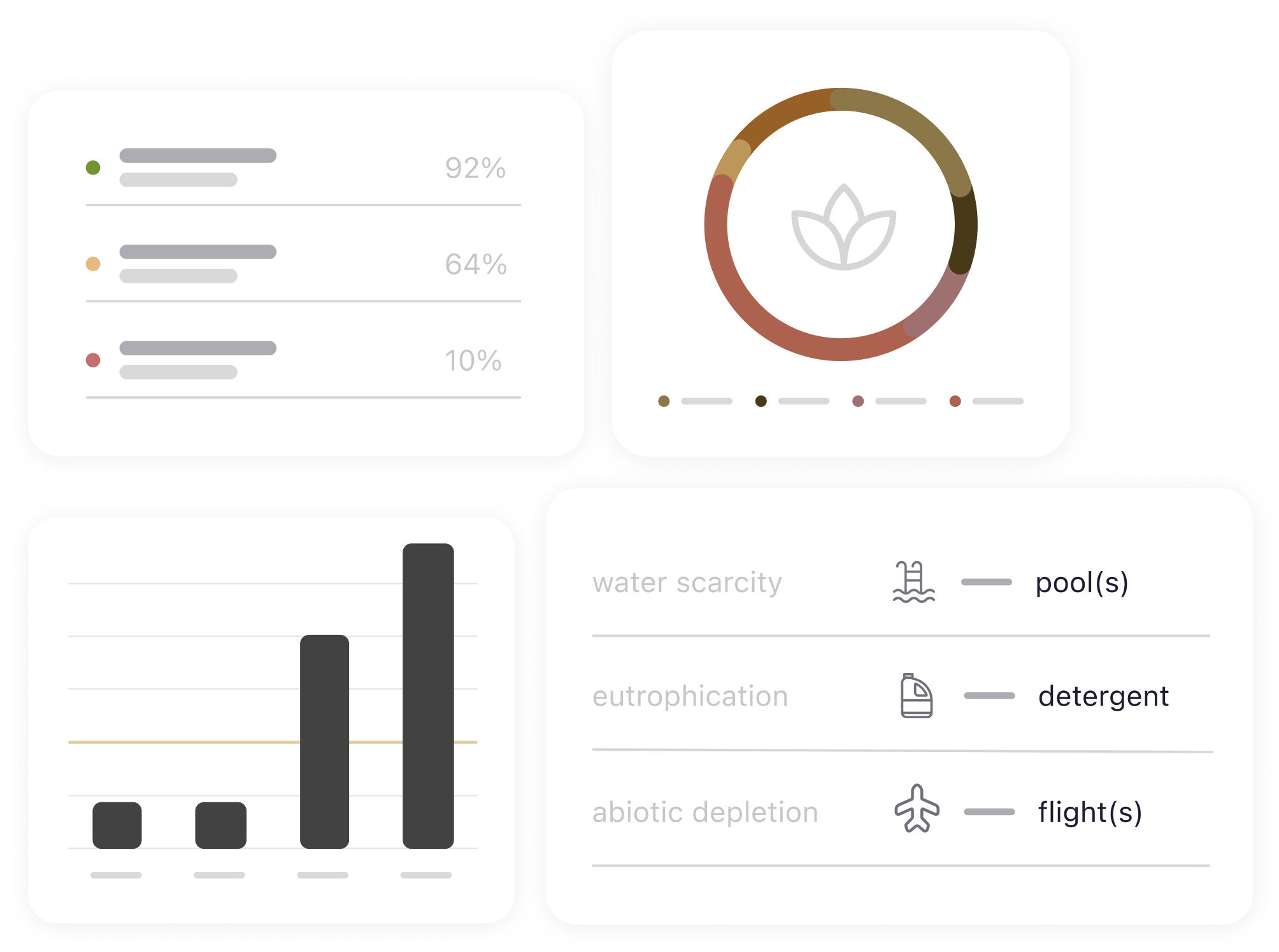We live in an era of misinformation, where the increase in content shared across multiple channels leads to greater saturation rather than improved understanding. If your fashion company is planning how to move towards sustainability, it’s crucial not to start with the final steps but to train your team on the fundamental aspects needed to make this sustainable transformation a reality. In this article, we reveal the key sustainability training sessions that fashion professionals should have on their radar to unlock genuine learning.
We must rely on knowledge to act effectively. It’s crucial not to overlook the need for learning when tackling challenges that are new to industry professionals.
Can you really reduce your business’s carbon footprint if you don’t understand what it involves? Many professionals turn to comprehensive sustainability solutions like BCome, but they often lack the knowledge to fully leverage the insights from their product analysis.
At BCome, we constantly emphasize that sustainability is complex; there’s no magic wand for quick solutions. We must rely on knowledge to act effectively, and it’s crucial not to overlook the need for learning when tackling challenges that are new to industry professionals.
Which training sessions benefit fashion professionals most?
Whether you’re a fashion company CEO looking to help your team gain knowledge to enhance their sustainability-related tasks, or a textile professional aiming to improve your expertise in specific areas, we’ve outlined some training sessions that can help you move from misinformation to expertise in sustainability:
Everything you need to know about Life Cycle Assessment in fashion
You might have heard of Life Cycle Assessment (LCA) but still don’t fully understand what it is or how it can transform your business. At BCome, we were pioneers in applying LCA to fashion items, and through this training session, we want you to discover how this tool can help you evaluate the environmental impact of your products at each stage of their life cycle.
- Why is it relevant? LCA allows you to identify critical areas where you can reduce environmental impact and make informed decisions to enhance your business’s sustainability. By understanding the results, you can implement more effective strategies, comply with environmental regulations, and transparently communicate your efforts to your customers.
The main benefit of calculating the environmental impact of our products throughout their life cycle is to improve materials and products with the worst impact. Sharing information among suppliers encourages better practices and materials.
Fernando Nuñez Diaz, Head of Production at HOFF
The value of impact measurement in the fashion industry
In this training session, you will discover the significance of comprehensive impact measurement in the fashion industry. At BCome, we believe that sustainability isn’t just about assessing environmental footprints but also about adopting a multidimensional perspective. Impact measurement should cover environmental, social, and economic aspects to provide a complete and accurate view of how your operations affect the world.
- Why is it relevant? Understanding impact measurement comprehensively allows you to uncover opportunities for cross-cutting improvements. This holistic view is crucial for defining the metrics that will help you make better decisions throughout your supply chain, reduce your impact in several areas, and optimize your resources.
In sustainability, you need an annual reference point to compare your performance, just as you do with finances. It’s about giving sustainability the place it deserves because, in the end, we’re addressing a complex, multidimensional challenge that requires data to fully understand.
Carol Blázquez, Head of Innovation & Sustainability at Ecoalf
Assess your circularity with the Circular Economy Indicators
In this session, you’ll learn about Circular Economy Indicators (CEI) and how to use them to assess the circularity of your products and processes in the fashion industry. Developed by BCome using the Ellen MacArthur Foundation’s methodology, CEI is an essential tool for understanding how your company is implementing circular economy practices, such as recycling, reuse, and waste reduction.
- Why is it relevant? Understanding how to assess the circularity of your products helps you identify areas for improvement in design, production, and management, optimizing resource use and minimizing waste. Through CEI, you can set clear goals and track your progress on key indicators, such as “total unrecoverable waste”.
We encourage brands to take control of their stocks to put an end to their destruction. We want to be able to quantify our environmental impact and prove that circularity and local production are virtuous for the planet and for humanity.
Anne Guihery, Textile Engineer at Weturn
How to implement the Digital Product Passport in your items
This training session will provide you with information on the Digital Product Passport and how to implement it in your fashion items. Introduced by the European Union’s Ecodesign for Sustainable Products Regulation, this passport contains detailed information about each product, including its origin, materials, manufacturing process, and recycling options. It enables comprehensive tracking of the product’s life cycle, ensuring transparency and traceability throughout the supply chain.
- Why is it relevant? The Digital Product Passport is a key tool that will soon be mandatory for all products sold in the European Union. It’s essential to learn how to gather and share the required information to comply with this regulation. Providing consumers with clear and verified data about your products will become the standard, promoting transparency for your brand.
Ultimately, the Digital Passport aims to reduce speculation by establishing a regulatory framework that standardizes how we communicate supply chain information and impact measurements. This marks the beginning of a new era of verification, where data serves as a verification tool and consumers gain direct access to information about the supply chain of the products.
Alba Garcia-Betorz, Co-Founder & Co-CEO of BCome
Anti-greenwashing communication through the Green Claims Directive
Don’t be afraid of unintentionally engaging in greenwashing. In this training session, you will learn how to communicate your sustainability efforts effectively and truthfully, following the guidelines set by the European Union’s Green Claims Directive. This directive aims to prevent greenwashing by ensuring that the claims made by companies are clear, accurate, and verifiable.
- Why is it relevant? Learning to communicate your sustainability claims in line with this regulation will help you avoid the risks of greenwashing and greenhushing. It will also help you avoid penalties by enhancing the credibility of your environmental claims. This session will equip you with the tools needed to make truthful statements.
Until now, consumers have been somewhat skeptical about purchases because the term ‘sustainable’ has become a buzzword. This directive aims to regulate this issue, and I believe it will also be a turning point. It will create a gap because those companies that lack the resources or fail to adapt will struggle to survive.
Patricia Bori, Product & Sustainability Specialist at SAYE
At BCome, we believe that knowledge is the foundation of any transformation. These training sessions are designed to provide you with valuable insights and tools to enhance your sustainability practices as a professional in the fashion industry. You can choose from live sessions tailored to your business needs or detailed documentation to dive deeper into each topic.
Training makes the difference between those who want to evolve and those who stay in their comfort zone. Let’s talk and move forward together toward a more sustainable future!









